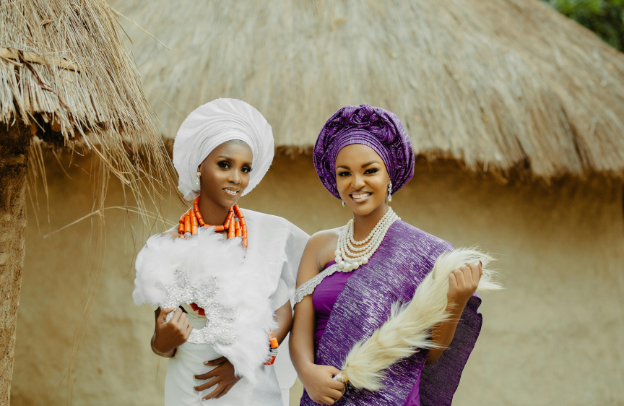Cultural Exchange and Collaboration: The Role of Group Tourism in Diaspora Engagement

In an era where identity and connection are often filtered through digital screens, an increasing number of people from the African diaspora are seeking more tangible, meaningful experiences to reconnect with their roots. Group travel, communal travel experiences tailored for members of the African diaspora, has emerged as a powerful tool not only for cultural exchange but also for fostering collaboration and long-term engagement with African communities.
Learn How to Leverage Your Story through our Story To Asset Framework.
But beyond guided tours and photo opportunities, these trips are becoming transformative journeys that reframe heritage, reshape narratives, and build networks of solidarity.
Group travel has evolved far beyond traditional sightseeing—it’s becoming a powerful vehicle for immersive cultural exchange. Diasporans from the U.S., the Caribbean, and Europe traveling to countries like Ghana, Nigeria, Senegal, and South Africa are not just visiting heritage sites; they’re participating in meaningful interactions centered on storytelling, entrepreneurship, and education.
A standout example is Ghana’s 2019 “Year of Return,” which attracted nearly 1.5 million visitors, many of them African Americans seeking to reconnect with their ancestral roots. What began as a commemorative initiative has grown into a dynamic model of cultural diplomacy and diaspora travel—one that’s inspiring similar movements across the continent and reshaping how Africa engages with its global diaspora
See also How Group Tourism Facilitates Ongoing Collaboration and Growth within Diaspora Communities
What sets group travel apart is its capacity to foster collective memory. Unlike individual travel, these curated trips often include facilitated discussions, lectures by local historians, and visits to culturally significant landmarks. Such shared experiences help travelers make sense of history together.
Visiting the Door of No Return on Senegal’s Gorée Island or the slave castles of Cape Coast and Elmina in Ghana offers more than a history lesson—it becomes a deeply emotional, communal act of remembrance.
Scholars like Dr. Cheryl Finley describe these sites as “ritual landscapes,” sacred spaces where members of the African diaspora can mourn, reflect, and reimagine their connection to ancestral homelands. These are not just tourist destinations, but places of healing and identity reclamation.
Beyond remembrance, group travel is increasingly a catalyst for economic collaboration between diasporans and local communities. These cultural exchanges have sparked the growth of artisan markets, creative festivals, and entrepreneurial ventures.
In Nigeria, for instance, diasporan-led efforts like Taste of Africa Global organize heritage tours that also double as platforms for business networking with local innovators. In such spaces, travel moves beyond consumerism—it becomes a conduit for shared prosperity, where ideas, resources, and opportunities flow both ways.
This model of travel also supports intergenerational memory-building. Diasporan parents often bring their children along to instil cultural pride and historical awareness from a young age. According to The Africa Memory Project, these experiences help forge lasting bonds between diasporan families and African communities. What begins as a visit often evolves into deeper engagement through internships, educational exchanges, or even long-term resettlement.
Central to this movement is the power of storytelling. Tour organizers frequently include African griots, poets, and historians who share local narratives typically absent from Western education. This storytelling revives cultural continuity and directly counters historical erasure.
As the African Diaspora Tourism organization notes, these voices offer a richer, more nuanced understanding of Africa’s complexity—disrupting harmful stereotypes and monolithic portrayals that still dominate global media.
In recent years, technology has expanded the reach and depth of these exchanges. Digital platforms allow travelers to connect with their group ahead of time, attend virtual seminars, and stay in touch with local hosts long after the journey ends.
Programs like Birthright AFRICA are leveraging these tools to make heritage travel more accessible, especially for young diasporans who might not otherwise have the opportunity. In doing so, they’re building communities that extend well beyond the trip—communities grounded in memory, identity, and shared purpose.
See also Group Tourism as a Catalyst for Diaspora Activism and Collaborative Community Projects
Importantly, group travel also serves as a platform for activism and advocacy. It often brings diasporans face-to-face with contemporary challenges in African societies, such as youth unemployment, climate vulnerability, and gender equity.
By weaving service projects and panel discussions into the travel experience, group tours are transforming from passive sightseeing into active, purpose-driven engagement. For example, groups traveling with the African American Association of Ghana often participate in volunteer work and grassroots philanthropy—efforts that foster relationships grounded in solidarity rather than charity. This participatory model encourages deeper, more reciprocal connections between diasporans and local communities.
Such engagement builds trust and counters the perception of cultural travel as extractive or exploitative. When diasporans invest their time, skills, and resources, local communities often respond in kind—with hospitality, mentorship, and rich cultural knowledge. These mutual exchanges foster social cohesion and lay the groundwork for relationships that continue long after the tour ends.
Women have played a central role in shaping this evolving landscape. Women-led tour groups like Black Girls Travel Too and NoMadness Travel Tribe create empowering spaces that center Black women’s experiences. Through curated explorations of fashion, cuisine, music, and leadership, these tours elevate the voices of African and diasporan women, challenging historical silences and showcasing their vital role in strengthening ties across the diaspora.
Educational institutions are also recognizing the power of group travel as a tool for experiential learning. More universities are integrating African heritage tours into their study-abroad programs, using them to explore themes such as postcolonial identity, transnational solidarity, and historical memory. These immersive experiences offer depth and nuance that classroom instruction alone cannot provide, enriching the academic journey for students and educators alike.
On the ground, the growth of diaspora travel is also driving investment in cultural infrastructure. Governments are revitalizing heritage sites, building museums, and launching diaspora-focused heritage trails. Projects like Rwanda’s Gorilla Guardians Village and Benin’s new Slave Route Memorial illustrate how travel can catalyze cultural preservation while giving locals greater access to their own history and narratives.
Still, challenges persist. The cost of group travel—including airfare, lodging, and visa fees—can be a significant barrier, especially for working-class diasporans.
Critics also caution that, without thoughtful planning, some tours risk turning sacred sites into spectacles. To avoid this, travel providers must work hand-in-hand with local communities to ensure respectful representation, ethical engagement, and long-term benefits for all involved.
See also DTE (Diaspora Tourism Experience) Reaching Out To The African Museum Of Verona
Still, when designed with care and intention, group travel stands as a potent tool for building bridges between African and diasporan communities. It offers a model of engagement that is reciprocal, transformative, and rooted in shared history. As global interest in ancestral travel grows, the challenge is to ensure that these experiences go beyond surface encounters to cultivate real relationships, between people, cultures, and continents.
In a world fractured by division and displacement, group travel invites diasporans to return not as strangers but as partners. It offers the possibility of transformation, not only for those who travel but also for the communities they touch.
Through shared stories, laughter, struggle, and discovery, the African diaspora continues to find new ways to come home; and in doing so, redefines what home means for generations to come.
Learn How to Leverage Your Story through our Story To Asset Framework.





